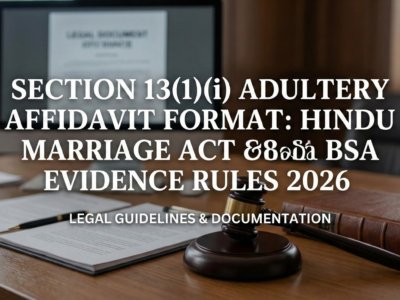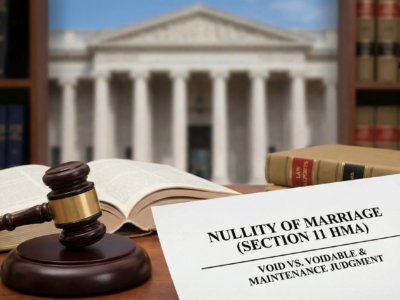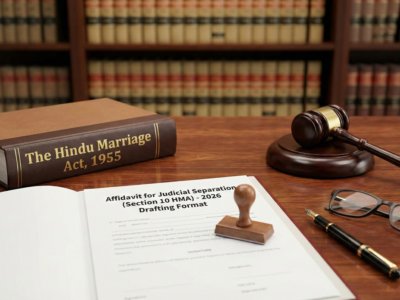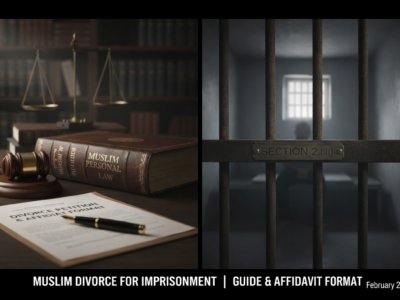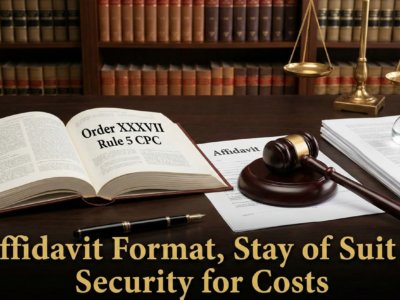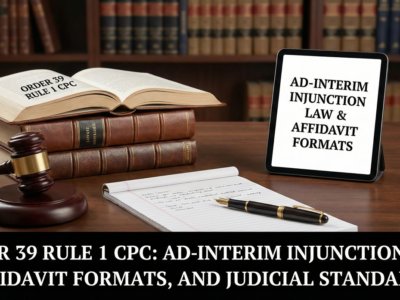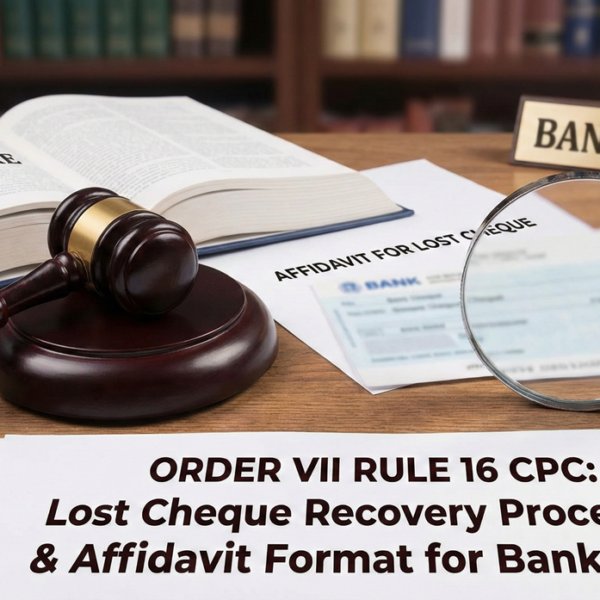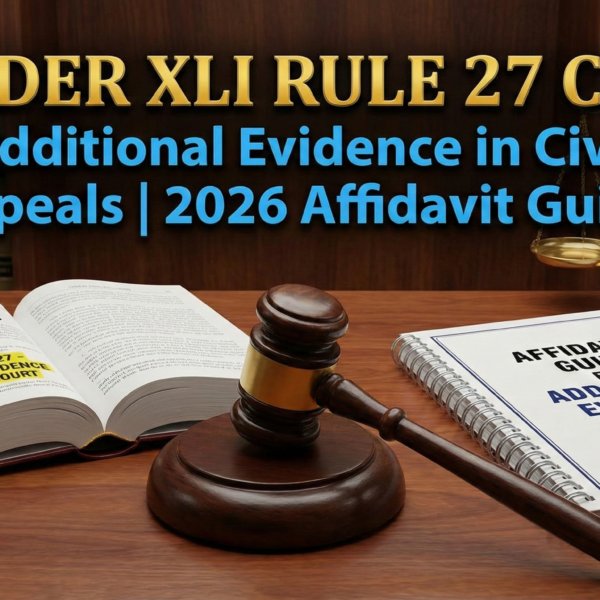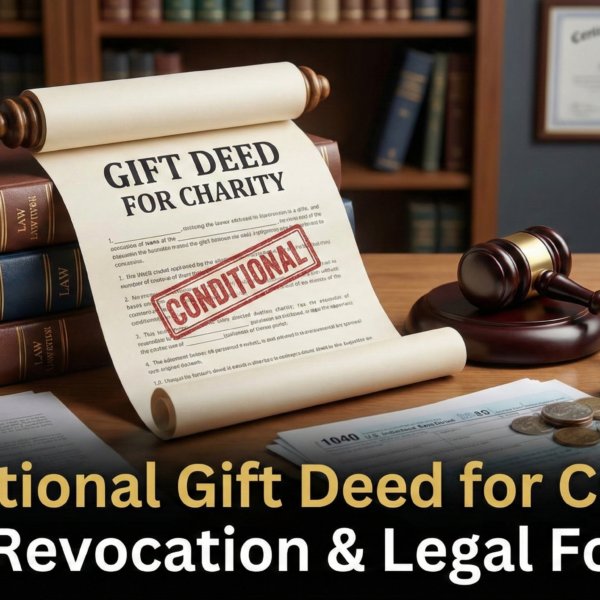When a person (the “testator”) passes away, their will becomes the guiding document for distributing their assets. Many people assume that if a will wasn’t registered during the testator’s lifetime, it’s too late. This is incorrect.
Indian law allows for a will to be registered after the testator’s death. This process, known as posthumous registration, is an administrative step taken by the executor (the person named to carry out the will’s instructions). The main goal is to add a strong layer of authenticity to the will. By presenting the will and supporting affidavits to a Sub-Registrar, the executor creates a secure public record. This step can significantly reduce future disputes among heirs and makes the entire process of asset transfer much smoother.
A Practical Guide: Registering a Will After Death in India
Legal Framework and Procedural Requirements for Posthumous Will Registration
By the Evaakil.com Legal Team | Updated: October 2025
What is Posthumous Will Registration?
When a person (the "testator") passes away, their will becomes the guiding document for distributing their assets. Many people assume that if a will wasn't registered during the testator's lifetime, it's too late. This is incorrect.
Indian law allows for a will to be registered *after* the testator's death. This process, known as posthumous registration, is an administrative step taken by the executor (the person named to carry out the will's instructions).
The main goal is to add a strong layer of authenticity to the will. By presenting the will and supporting affidavits to a Sub-Registrar, the executor creates a secure public record. This step can significantly reduce future disputes among heirs and makes the entire process of asset transfer much smoother.
Key Legal Point:
The right to do this comes from **Section 40(1) of The Registration Act, 1908**. It clearly states that the testator, or *after his death, any person claiming as executor*, can present the will for registration.
Registration vs. Probate: What's the Difference?
It's easy to confuse these two terms, but they serve very different purposes. Registration is an optional administrative step for authenticity, while probate is a formal court procedure to get legal authority.
| Aspect | Will Registration | Probate |
|---|---|---|
| What is it? | An administrative process to create an authentic public record of the will. | A judicial process where a court certifies the will's validity and grants the executor authority. |
| Who handles it? | The Sub-Registrar. | A competent Court (e.g., District Court or High Court). |
| Governing Law | The Registration Act, 1908. | The Indian Succession Act, 1925. |
| Is it Mandatory? | No. An unregistered will is still 100% valid if it can be proven in court. Registration just makes proving it easier. | Yes, in some cases. It is often required in major cities (like Mumbai, Kolkata, Chennai) or if the will involves immovable property. |
| Primary Benefit | Provides a strong presumption of genuineness and prevents tampering or forgery. | Gives the executor the final, undisputed legal power to collect debts and distribute assets. |
Infographic: What Makes a Will Legally Strong?
A will's strength comes from several factors. While registration is optional, it adds a significant layer of protection. This chart illustrates the key components of a defensible will.
Infographic: The Post-Death Registration Process
Here is a step-by-step visual of the journey from finding the will to getting it registered.
Breaking Down the Key Documents
The application isn't just the will itself. It relies on two sworn statements, called affidavits, to prove its validity.
1. The Executor's Affidavit (The Application)
This is the main application document, sworn by you (the executor). Below is an annotated breakdown of what this affidavit must declare, based on common legal templates.
Annotated Executor's Affidavit
BEFORE THE SUB-REGISTRAR, [DISTRICT/CITY]
AFFIDAVIT
I, [Executor's Name], age [XX], S/o [Father's Name], resident of [Address], do hereby solemnly affirm and declare as under:
# 1. Identifies you, the applicant.
1. That I am the deponent herein and the executor of the last Will and Testament dated [Date of Will] of the late [Testator's Name].
# 2. Confirms the testator's passing.
2. That the said [Testator's Name], S/o [Testator's Father's Name], died on [Date of Death] at [Place of Death]. A copy of the original Death Certificate is attached.
# 3. Confirms the testator's sound mind and will execution.
3. That the deceased, at the time of executing the said Will, was of sound disposing mind and executed the same in the presence of two attesting witnesses.
# 4. Explains the reason for post-death registration.
4. That due to the sudden death of the testator, the said Will could not be registered during his lifetime.
# 5. Confirms the witnesses' statements.
5. That the attesting witnesses, [Witness 1 Name] and [Witness 2 Name], have also filed their affidavits identifying the testator and confirming the execution of the Will.
# 6. The "Prayer" - your formal request.
6. It is therefore prayed that the said Will be registered in accordance with the law.
[Verification Clause]
VERIFICATION: Verified at [Place] on this [Day] of [Month, Year]...
[DEPONENT]
2. The Attesting Witness Affidavit (The Proof)
This is arguably the most important piece of evidence. This affidavit is sworn by one or both of the original witnesses to the will. They must confirm the act of signing.
Annotated Witness's Affidavit
BEFORE THE SUB-REGISTRAR, [DISTRICT/CITY]
AFFIDAVIT
I, [Witness's Name], age [XX], S/o [Father's Name], resident of [Address], do hereby solemnly affirm and declare as under:
# 1. Confirms they are the witness from the will.
1. That I am one of the attesting witnesses to the Will dated [Date of Will] executed by the late [Testator's Name].
# 2. This is the crucial part: confirms they saw the signing.
2. That the testator signed the said Will in my presence, and I, along with the other witness [Witness 2 Name], signed the Will in the presence of the testator.
# 3. Confirms the testator's capacity and lack of coercion.
3. That the testator was of sound mind, memory, and understanding at the time of signing and was not under any undue influence or coercion.
# 4. Confirms the executor's identity.
4. I also identify [Executor's Name] as the executor named in the said Will.
[Verification Clause]
VERIFICATION: Verified at [Place] on this [Day] of [Month, Year]...
[DEPONENT]
Without this witness affidavit, the Sub-Registrar cannot register the will. Both affidavits, plus the original will and other documents, form a complete package.
Interactive Application Checklist
Gathering your documents is the most important step. Use this filterable checklist to see who needs to provide what.
-
1
Original Will The actual document signed by the testator. No photocopies.
-
2
Original Death Certificate Issued by the municipal authority. This is non-negotiable proof.
-
3
Executor's Affidavit The notarized application (as described above).
-
4
Witness Affidavit(s) The notarized statement from one or both attesting witnesses.
-
5
Executor's ID & Address Proof e.g., Aadhar Card, Passport, Voter ID.
-
6
Witness's ID & Address Proof For all witnesses who are providing affidavits.
-
7
Passport-sized Photographs For the executor and the attesting witnesses.
The Legal Foundations: Know the Law
This entire process is built on a few key pieces of legislation. Understanding them helps clarify *why* these steps are necessary.
The Registration Act, 1908
- Section 40(1): Explicitly gives the executor the right to present the will for registration after the testator's death.
- Section 41: Details the procedure, including the Sub-Registrar's duty to be satisfied of the testator's death, the will's execution, and the applicant's identity.
- Section 27: Provides the "any time" exception, stating a will can be presented for registration at any time, unlike other documents.
Succession & Evidence Acts
- Indian Succession Act, 1925 (Sec 63): This law defines *how* a will must be made. It requires the testator's signature, two witnesses, and for all parties to sign in each other's presence. The witness affidavit *proves* this section was followed.
- Indian Evidence Act, 1872 (Sec 68): This law states that to prove a document (like a will), at least one attesting witness must be called. The witness affidavit fulfills this requirement for the registration.
Common Pitfalls & How to Avoid Them
The application can be rejected for simple, avoidable errors. Be aware of these common issues.
1. Mismatched or "Unpracticed" Signatures
If the testator was elderly or ill, their signature on the will might look different from their signature on their ID. Similarly, witnesses must sign their affidavits with the *same* signature they used on the will, which may have been years ago.
2. Incomplete or Vague Affidavits
Using a template (like the ones above) is a start, but all details must be correct. Wrong dates, misspelled names, or failing to state *why* the will wasn't registered (e.g., "sudden death") can lead to rejection.
3. Issues with the Original Will Document
The Sub-Registrar must inspect the *original* will. They will reject photocopies. Furthermore, if the will is damaged, torn, or *laminated*, the officer may question its authenticity, as lamination makes it impossible to analyze the paper and ink.
Common Questions (FAQ)
Is there a time limit to register a will after death?
No. This is a major relief for many. While most documents (like property sale deeds) must be registered within a few months, **Section 27 of the Registration Act, 1908**, creates a specific exception for wills.
It states: "A will may at any time be presented for registration..." This means you can register a will years, or even decades, after the testator's death. The explanation in the affidavit about a "sudden death" is just to provide context, not to meet a legal deadline.
What if the attesting witnesses are also dead or cannot be found?
This complicates things but doesn't make it impossible. The process moves from the Sub-Registrar's office (administrative) to a court (judicial) for probate.
Under the Indian Succession Act and the Indian Evidence Act, if witnesses are unavailable, you would need to prove the will in court by other means, such as:
- Proving the handwriting of the witness(es).
- Proving the handwriting of the testator.
- Providing other circumstantial evidence that the court finds convincing.
For the simpler Sub-Registrar process, however, at least one living, findable witness is almost always required.
Do the executor and witnesses need to go to the Sub-Registrar's office?
Yes, almost certainly. The Sub-Registrar has a duty to be satisfied of the "genuineness of the documents and witnesses." While the affidavits are the formal application, the officer will likely require the executor and the attesting witnesses to appear in person.
This allows the officer to verify their identity against their ID proofs and confirm that they stand by the statements made in their affidavits. It's a key anti-fraud step in a process that relies on sworn testimony.
What happens after the will is registered?
Once the Sub-Registrar is satisfied, they will make an official entry of the will in their records. The original will is often returned with an official stamp or endorsement, and a record is kept in the government registry.
You can then obtain "Certified Copies" of this registered will. These certified copies are powerful legal documents that you can use to transfer property (e.g., at the land registry) or assets (e.g., at a bank) into the names of the beneficiaries, as directed by the will.
What if the original will is laminated or damaged?
This can be a serious problem. **Do NOT laminate the will.** Lamination makes it impossible to verify the age of the ink and paper and can be seen as an attempt to obscure the document's originality. A registrar may refuse to accept a laminated will.
If the will is merely old, fragile, or torn, handle it with extreme care. You must present it as-is. Do not try to repair it with tape. The Sub-Registrar will make a note of its condition. As long as the signatures and text are legible, it can usually be processed, but lamination is a major red flag.

